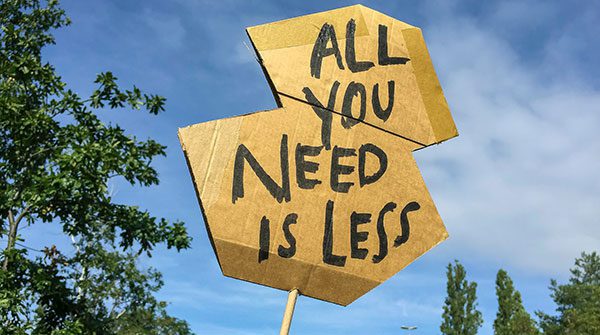The carbon tax doesn’t cut GHG emissions. It cuts family budgets. It’s time for the feds to recognize reality and stop making life more expensive
 If at first you don’t succeed: try, try again.
If at first you don’t succeed: try, try again.
That’s a good motto if you want to start a business or make the high school basketball team. But when one tax is doomed to fail, it doesn’t mean the government should try another.
Take the carbon tax as a case study.
British Columbia imposed its carbon tax in 2008. Between 2007 and 2019 – the last year before the pandemic brought economic activity to a screeching halt – the province’s emissions increased by four percent. In stark contrast, Nova Scotia has the lowest carbon tax on transportation fuels and reduced its emissions by 36 percent since 2005.
Canada’s total emissions also increased in 2019, the first year of the national carbon tax and the last year before the pandemic.
Why is a Canadian carbon tax doomed to fail? Jeff Barlow, an Ontario corn, wheat and soybean farmer, provides important clues.
“My competitors to the south of me in the United States do not pay that (carbon) tax, so now my cost goes up and I have no alternative,” Barlow said. “By penalizing me, there’s nothing else that I can do but just be penalized.”
Here’s the first insight we can take from Barlow:
Fueling up a car with gas, heating homes and businesses with natural gas, drying grain with propane, or filling up the big rig with diesel, are necessities for countless Canadians. Instead of escaping the punishment of the carbon tax, many Canadians are forced to cut back elsewhere, like socking less money away for their kid’s university education.
The second insight is that many other countries don’t have a carbon tax.
According to the World Bank, more than three-quarters of countries don’t have a national carbon tax.
The United States, Russia and India account for a quarter of global emissions. None of those countries have a national carbon tax. Good luck selling a carbon tax to Texans.
Canada only accounts for 1.5 percent of global emissions.
Canada’s share of global emissions is expected to drop because of the “rapid increase in emissions from economically developing and emerging countries, particularly China (+71.7 percent from 2005 to 2019), India (+71.3 percent), Brazil (+16.2 percent) and Indonesia (+37.9 percent),” according to the government of Canada.
Canadians paying more to fill up their grocery carts or minivans won’t reduce emissions in China.
Or, as the Parliamentary Budget Officer put it, “Canada’s own emissions are not large enough to materially impact climate change.”
The carbon tax doesn’t cut emissions. It cuts family budgets.
The carbon tax will cost the average family up to $710 this year even after the rebates, according to the PBO.
Despite the carbon tax’s environmental failings, and inflation reaching a 40-year high last year, Trudeau is moving forward with a second carbon tax on July 1.
The second carbon tax is included within fuel regulations and requires producers to reduce the carbon content of their fuels or be forced to purchase credits. The PBO estimates the second carbon tax will increase the price of gas by up to 17 cents per litre by 2030 and cost the average family up to $1,157.
The government’s own analysis shows the second carbon tax will “disproportionately impact lower and middle-income households,” including “single mothers” and “seniors living on fixed incomes.”
There are no rebates with the second carbon tax. And it’s being added on top of the current tax so that by 2030, Trudeau’s two carbon taxes will cost the average family more than $2,000 annually.
No matter how many carbon taxes Trudeau makes Canadians pay, higher gas prices in Canada won’t solve climate change.
It’s time for the feds to recognize reality and stop making life more expensive.
Franco Terrazzano is the Federal Director of the Canadian Taxpayers Federation.
For interview requests, click here.
The opinions expressed by our columnists and contributors are theirs alone and do not inherently or expressly reflect the views of our publication.
© Troy Media
Troy Media is an editorial content provider to media outlets and its own hosted community news outlets across Canada.

